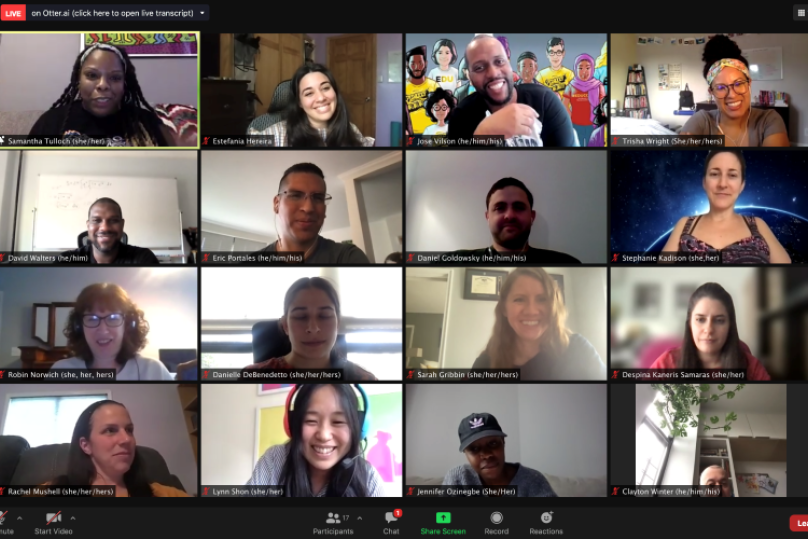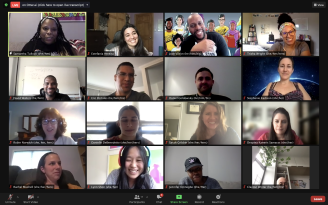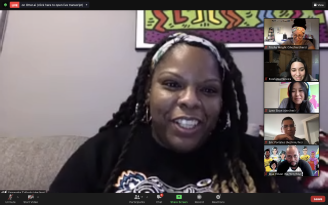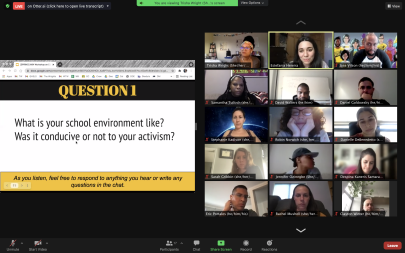

As educators in NYC schools who often serve a majority of young people of color, MƒA teachers wondered how they could improve the ways in which they support their students, especially during the COVID-19 pandemic. This past semester, MƒA Master Teachers Estefania Hereira (Flushing International High School) and Trisha Wright (Queens High School for Language Studies) led “Racial Equity in the Classroom and Beyond,” an MƒA Professional Learning Team (PLT) designed to engage teachers in courageous conversations about race and work towards dismantling racism in classrooms, school systems, and beyond.
In the four-session PLT, MƒA teachers participated in storytelling, a traditional method used by Indigeneous people, to share knowledge and reflect on the biases that inform their beliefs and practices and the ways white supremacy culture shows up in their organizations and in society. Throughout the course, the group reinforced community norms and agreements like confidentiality and open-mindedness to create a supportive, brave, and nurturing environment where they could share their own cultural and racial experiences.
“We often hear terms thrown around and read biased information in newspapers, on social media, and on television,” shared MƒA Master Teacher Despina Kaneris (Queens High School for Language Studies) who participated in the course to learn factual information about how to create a racially equitable school environment. “Talking about race can be uncomfortable, but discomfort is how we learn and grow.”

In addition to sharing their own knowledge, the group welcomed a student-led panel to discuss their experiences with racial equity in school. For the final session, MƒA Master Teachers Lynn Shon (J.H.S. 088 Peter Rouget) and Samantha Tulloch (Park Slope Collegiate), and former MƒA Master Teacher and current Executive Director of EduColor José Vilson participated on a panel to share their experiences with race in their communities and school districts, and provide guidance on how to support students through policy change.
“Hearing how MƒA teachers transformed into policy-creating activists was so inspiring. Seeing their passion for equity and their determination to create change motivates me to create a better school experience for my kids,” added Despina. “The students we teach today are the ones that will impact the future.”
“Talking about race can be uncomfortable, but discomfort is how we learn and grow.”
